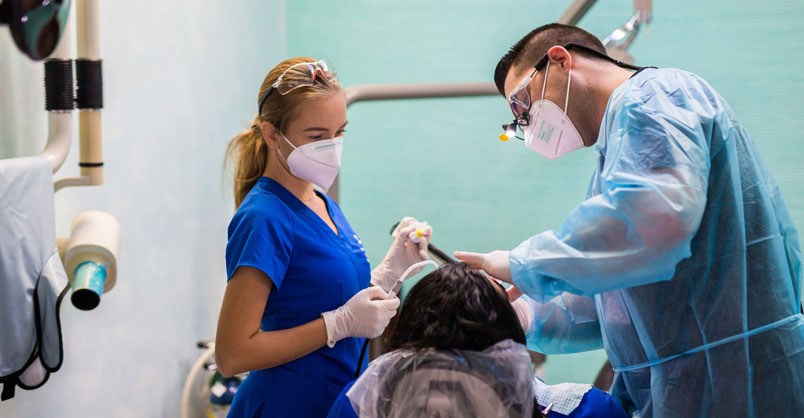Which Of The Several Dental Sedation Options Is Best For You?
Any patient may have mild anxiety when they see the dentist, but for some, even a basic checkup may be impossible due to physical, mental, or emotional difficulties. All patients should read this article on sedation dentistry to learn about the several types of Sedation available, how they work, and who might benefit most from them.
Dental Sedation: what is it?
Using medication to relax patients during dental operations is known as sedation dentistry. It can be applied to various operations, including intricate surgery and basic cleanings. Your Sunny Dental will collaborate with you to choose the sedation method that will be most appropriate for your treatment and degree of anxiety out of the various options available.
Different types of dental Sedation used in the procedure
Mild Sedation
Even when you are awake, you can feel sleepy and dreamy. Under little anesthesia, some patients might not recall their surgery. In most cases, patients can still respond to spoken commands, but they might need the dentist to provide tactile stimulation.

Very little Sedation
Despite being awake, the drug is causing you to feel more at ease. This is referred to as a mildly depressed state of awareness by the ADA. Patients are still able to react normally to spoken commands and stimuli.
Anesthesia general
You only awaken at the end of your procedure, and you are unconscious during the entire process.
Profound unconsciousness
You are getting close to unconsciousness but can still be woken up if needed.
Here are the types of dental Sedation
Oral Sedation
The most popular kind of Sedation used in dentistry is oral Sedation. It involves taking a sedative medication to help relax. The most common drug used in sedation dentistry is Halcion, which belongs to the same family as Valium.
Depending on the dosage, it can cause patients to experience mild to moderate Sedation. Many patients can become tired even with low levels of Sedation; in some instances, this can even lead to them nodding off during the procedure. You must go to the Sedation Dental near me for your oral health to receive better treatment options.
Breathed in sedative
Patients undergoing inhaled Sedation can breathe in a mixture of oxygen and nitrous oxide to induce more relaxation. In most cases, adults who receive inhaled Sedation can drive home immediately following their procedure because it wears off faster than other forms of Sedation.
Sedation IV
Dental practitioners can continuously medicate patients by injecting drugs into their veins with IV Sedation.
Take a soothing breath
Patients undergoing inhaled Sedation can breathe in a combination of oxygen and nitrous oxide to promote greater relaxation.
Adults who undergo inhaled Sedation can typically drive home immediately after the procedure because it wears off quicker than other types of Sedation.
Is it Safe for Patients with Special Needs to Get Sedated?
For most patients, sedation dentistry is safe if the attending dentists take all the required safety measures. For more needs and a safe procedure, visit the dental Sedation near me for your dental checkups.
It Includes
Routine prescription drugs
To help control their condition, many patients with special needs take medications regularly. When these are coupled with Sedation, they might have a bad reaction that compromises their health.

Congenital conditions
Like heart defects, Individuals with Down syndrome frequently have congenital cardiac defects that, if not appropriately managed, can result in cardiac arrest.
Causes of seizures
For patients with epilepsy or autism, Sedation needs to be carefully controlled so that at no time during the procedure the patient experiences a seizure.
Sum it up
An essential tool for guaranteeing the security and comfort of patients having dental work done is sedation dentistry. Even though there are many different kinds of Sedation available, it's crucial to talk about your needs and find the best kind of Sedation for you with sunny dental care.
Comments
Post a Comment